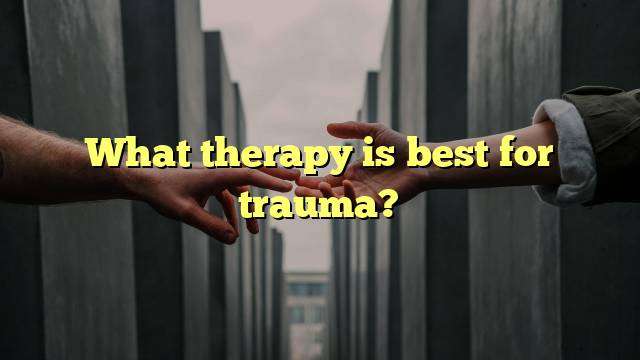Understanding Trauma and Different Types of Therapy
Trauma is a mental health condition that can have long-lasting effects and can be triggered by a variety of life events. Trauma can cause people to feel disconnected and isolated, and can lead to feelings of depression, anxiety, and difficulty functioning in everyday life. There are a variety of therapies available to help those who have experienced trauma, and it is important to understand the different types of therapy and how they can help.
Cognitive Behavioral Therapy (CBT)
Cognitive Behavioral Therapy (CBT) is one of the most widely used and accepted forms of therapy for treating trauma. CBT is a form of psychotherapy that focuses on changing thought patterns and behaviors in order to reduce symptoms of trauma. CBT is often used in combination with other forms of therapy and can help individuals to better understand their thoughts and feelings, and how to better manage them.
Prolonged Exposure Therapy (PE)
Prolonged Exposure Therapy (PE) is a form of psychotherapy that focuses on helping individuals to process and confront their traumatic memories, in order to reduce the symptoms of trauma. During PE, individuals are encouraged to talk about their traumatic experiences in a safe and secure environment. This can be done through role-playing, writing, or other activities. By processing these memories in a safe and supportive setting, individuals can learn to better cope with their trauma.
Cognitive Processing Therapy (CPT)
Cognitive Processing Therapy (CPT) is a type of psychotherapy that focuses on changing the way in which individuals think about their traumatic experiences. CPT helps individuals to challenge the distorted and negative thoughts they may have about their trauma, and learn to develop more adaptive and positive ways of thinking. Through CPT, individuals are able to gain insight into their thoughts and feelings, and better understand how their thoughts and beliefs affect their behavior.
Trauma-Focused Cognitive Behavioral Therapy (TF-CBT)
Trauma-Focused Cognitive Behavioral Therapy (TF-CBT) is a type of therapy that combines the principles of CBT and PE. This type of therapy focuses on helping individuals to understand the connection between their thoughts, feelings, and behaviors. Through TF-CBT, individuals can learn to better manage their thoughts, feelings, and behaviors in order to reduce their symptoms of trauma.
Eye Movement Desensitization and Reprocessing Therapy (EMDR)
Eye Movement Desensitization and Reprocessing Therapy (EMDR) is a type of therapy that uses eye movements, sounds, or other forms of stimulation to help individuals process their traumatic memories. EMDR helps individuals to process and reprocess their traumatic memories in a safe and secure environment, and can help to reduce the symptoms of trauma.
Medication
Medication is sometimes used in combination with psychotherapy to help individuals manage their symptoms of trauma. Antidepressants, anti-anxiety medications, and other types of medication can be prescribed to help individuals cope with their trauma. It is important to speak to a doctor or mental health professional to understand the risks and benefits of taking medication for trauma.
Which Therapy Is Best for Trauma?
When it comes to treating trauma, there is no one-size-fits-all approach. Different therapies may be more effective for different individuals, depending on their individual symptoms, needs, and preferences. It is important to speak to a mental health professional to discuss the different types of therapy and understand which one may be best for you. With the right therapy and support, individuals can learn to process their traumatic experiences and manage their symptoms, in order to live a happier and healthier life.



